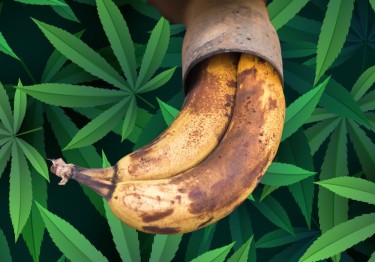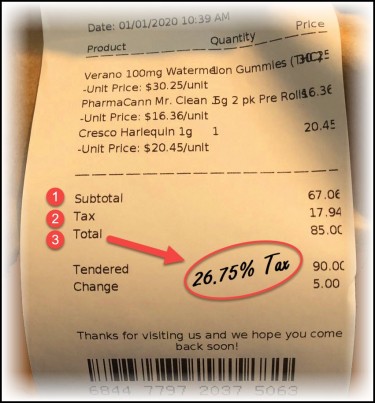Cannabis News
Can’t Visualize Something, Try Smoking Weed!
Published
6 months agoon
By
admin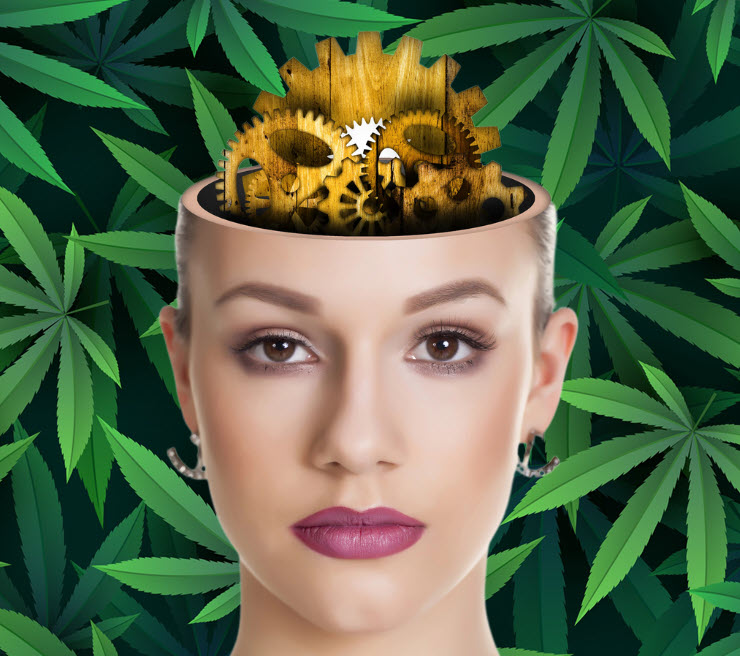
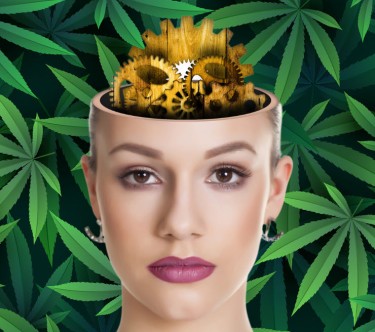
Aphantasia and Cannabis – A potential Cure?
Close your eyes and picture a vibrant red apple. For most people, this is a simple task, but for those with aphantasia, it’s an impossible feat. No matter how hard they try, they cannot conjure up a mental image. This is the reality for those living with aphantasia, a condition characterized by the inability to visualize within the mind’s eye.
Aphantasia can have a profound impact on an individual’s life. Many people rely on their mind’s eye for creativity, memory, and even decision-making. Without this ability, tasks that others take for granted can become challenging. For example, an architect with aphantasia may struggle to visualize a building before it’s constructed, or a novelist may find it difficult to describe their characters’ appearances.
However, a glimmer of hope has emerged from an unlikely source: cannabis. Some individuals with aphantasia have reported that after smoking or consuming cannabis, they suddenly gain the ability to visualize. This anecdotal evidence raises an intriguing question: could cannabis be a potential treatment for aphantasia?
In this article, we’ll dive into the experiences of various individuals who have used cannabis to combat their aphantasia. By examining their personal accounts, we aim to shed light on the potential merits of using cannabis as a tool to unlock the mind’s eye. While scientific research on this topic is limited, these anecdotes suggest that there may be a connection worth exploring further.
Join us as we embark on a journey into the world of aphantasia and discover how cannabis might hold the key to helping those with this condition experience the joys of visualization for the first time. Through the power of personal stories, we’ll paint a picture of the potential that lies within this fascinating intersection of mental imagery and medicinal cannabis.
In a recent Reddit thread, users with aphantasia shared their experiences using cannabis and how it affected their ability to visualize. The original poster, xx_elysium_xx, kicked off the discussion by sharing their own experience: “When I get really high, I can start to verrrrry faintly picture things in my brain. Like, super short, almost faded pictures of whatever I’m thinking of. I’ve only ever experienced this on cannabis, and no other drug with psychoactive effects.”
This sentiment was echoed by several other users. SybariticDelight commented, “I’ve just started taking THC gummies at bedtime and I’m now seeing short bursts of images just before sleep. I have no control over them, and often I see cats, but it’s awesome to see anything at all.” Another user, Cordeceps, added, “I can’t visualise on command but I get so sometimes get ‘washed out’ images and especially if I am high. I can even visualise what I want sometimes but it’s never a clear picture, more like a double exposure photo.”
These personal accounts suggest that cannabis may indeed have the potential to stimulate the brain regions responsible for visualization in individuals with aphantasia. While research on the exact causes of aphantasia is still limited, some theories propose that it may be related to differences in brain connectivity or activity in the visual cortex.
Cannabis, with its ability to interact with the body’s endocannabinoid system, could potentially help bridge these neurological gaps. The endocannabinoid system is known to play a role in various cognitive processes, including memory, attention, and perception. By modulating this system, cannabis might help facilitate communication between different brain regions, allowing for the generation of mental images.
However, it’s important to note that the effects of cannabis on aphantasia appear to be highly individualized. While some users report vivid visualizations, others, like Ok_yougotmee, found that “drugs barely affect me and I’m not sure if this has anything to do with Alexithymia. (I’m a total aphant with no inner monologue but I also have alexithymia).”
Despite these variations in experience, the anecdotal evidence presented in this Reddit thread offers a tantalizing glimpse into the potential of cannabis as a tool for managing aphantasia. As IcyConcept1271 shared, “The only time my wife says she has ever seen a picture in her mind is when we tried DMT.”
While more research is needed to fully understand the relationship between cannabis and aphantasia, these personal stories highlight the importance of exploring alternative approaches to treating this condition. As we continue to unravel the mysteries of the mind’s eye, cannabis may prove to be a valuable ally in helping those with aphantasia experience the world in a new light.
Aphantasia is a condition characterized by the inability to voluntarily create mental images in one’s mind. While most people can easily conjure up vivid pictures in their imagination, those with aphantasia draw a blank when attempting to do so. This phenomenon was first described in the late 19th century by Francis Galton, a British psychologist and statistician, who noticed that some individuals couldn’t form mental images.
Despite this early recognition, aphantasia remained largely unexplored until 2015, when the term was coined by Adam Zeman, a professor of cognitive and behavioral neurology at the University of Exeter. Since then, interest in the condition has grown, with more people coming forward to share their experiences and researchers working to uncover its underlying causes.
The exact prevalence of aphantasia is still unknown, but estimates suggest that it may affect up to 2-3% of the population. However, this number could be higher, as many individuals with aphantasia may not realize that their experience differs from the norm. Some people with aphantasia report never having been able to create mental images, while others lose this ability later in life, sometimes due to brain injury or psychological trauma.
Aphantasia can have a significant impact on various aspects of life. It can affect memory, as many people rely on mental imagery to recall past events or information. It may also influence creativity, with some individuals with aphantasia reporting difficulty in tasks that require visualization, such as art or design. However, it’s important to note that aphantasia doesn’t necessarily hinder intelligence or overall cognitive function.
Modern treatment options for aphantasia are still limited, as the condition is relatively newly recognized and understudied. Some researchers have suggested that techniques used to treat other mental health conditions, such as cognitive-behavioral therapy or mindfulness meditation, may be helpful for individuals with aphantasia who struggle with related challenges like memory or creativity.
In recent years, there has been growing interest in the potential of psychedelics, such as LSD and psilocybin, to help individuals with aphantasia. These substances have been shown to increase neural connectivity and promote neuroplasticity, which could potentially help “rewire” the brain to enable mental imagery. However, more research is needed to fully understand the safety and efficacy of these approaches.
As awareness of aphantasia continues to grow, so too does the hope for effective treatments and support for those living with this condition.
By sharing their stories and participating in research, individuals with aphantasia are helping to paint a clearer picture of this fascinating aspect of human cognition, paving the way for a deeper understanding of the mind’s eye and its role in our lives.
The Sticky Bottom Line
As someone who doesn’t experience aphantasia firsthand, it can be challenging to fully grasp the impact of this condition on daily life. However, by listening to the stories and experiences shared by those with aphantasia, we can begin to understand the frustration and limitations it can impose.
Imagine attending a guided meditation session where you’re encouraged to visualize a peaceful scene, only to find yourself staring into an endless void. Or picture the disappointment of trying to conjure up the face of a loved one, but finding no image appears in your mind’s eye.
While aphantasia doesn’t necessarily hinder overall cognitive function, it can certainly present obstacles in situations that rely heavily on mental imagery.
This is where the potential of cannabis as a treatment option becomes particularly intriguing. As we’ve seen from the anecdotal evidence shared on Reddit and other platforms, some individuals with aphantasia have found that cannabis use allows them to access visual experiences they’ve never had before.
Although these visualizations may be fleeting or disjointed, they nonetheless represent a significant breakthrough for those who have spent their lives in a world without mental images. The fact that cannabis has the potential to forge new connections in the brain and enable these experiences, even temporarily, is a testament to its therapeutic potential.
Given the limited treatment options currently available for aphantasia, it’s crucial that we explore all avenues for improving the lives of those with this condition. If cannabis can provide a means of accessing the mind’s eye, even in brief glimpses, then it should absolutely be considered as part of the toolkit for managing aphantasia.
Of course, more research is needed to fully understand the mechanisms behind cannabis’ effects on aphantasia and to develop safe and effective treatment protocols. But the stories shared by brave individuals on platforms like Reddit serve as a powerful reminder of the transformative potential of this plant medicine.
As we continue to destigmatize both aphantasia and cannabis use, we open the door to new possibilities for understanding and treating this condition. By listening to the experiences of those with aphantasia and advocating for further research into the therapeutic applications of cannabis, we can help create a world where the mind’s eye is accessible to all, one vivid image at a time.
CANNABIS AND CREATIVITY, READ ON…
You may like
-


Cannabis operators report Instagram page ‘shadow bans’ and closures
-


How Interstate Commerce is Driving the Growth of Hemp-Derived Consumer Products
-


The Grinch Stole SAFE Banking from the Cannabis Industry This Christmas, Yet Again!
-
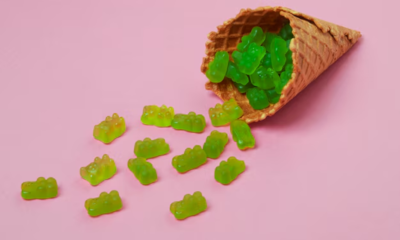

HHC vs. Delta 9: Differences & Similarities
-


DOJ Asks Federal Court To Deny Doctors’ Lawsuit Over Marijuana Rescheduling Hearing To Avoid ‘Undue Delay’
-


What Federally Illegal Drug Has Created Almost $10 Billion in Sales Tax Revenue for States in the Last 40 Months?
Cannabis News
The Grinch Stole SAFE Banking from the Cannabis Industry This Christmas, Yet Again!
Published
22 hours agoon
December 22, 2024By
admin

The landscape of cannabis legislation in the United States has been a complex and evolving issue, particularly concerning banking regulations. As of December 2024, it has become official: the current Congress will not provide any protections for banks that serve state-legal marijuana businesses. This decision has significant implications for the cannabis industry, which continues to grow rapidly despite the lack of federal support. In this article, we will explore the reasons behind this decision, the implications for cannabis businesses, and the broader context of cannabis legalization in America.
The State of Cannabis Legalization
A Growing Industry
The cannabis industry has seen remarkable growth over the past decade. As of late 2024, 23 states and Washington D.C. have legalized recreational marijuana use, while 38 states allow medical marijuana. According to recent estimates, the legal cannabis market in the U.S. is projected to reach over $40 billion by 2025. This growth has been fueled by changing public perceptions of marijuana, increased advocacy for legalization, and significant tax revenues generated by state-legal cannabis sales.
The Banking Dilemma
Despite this rapid expansion, cannabis businesses face unique challenges, primarily due to their inability to access traditional banking services. Federal law classifies marijuana as a Schedule I controlled substance under the Controlled Substances Act. This classification creates a significant barrier for banks and financial institutions that wish to work with cannabis businesses, as they risk federal penalties for facilitating transactions related to an illegal substance.
As a result, many cannabis companies operate on a cash-only basis. This situation not only poses safety risks—such as increased theft and violence—but also limits these businesses’ ability to manage finances effectively, pay taxes electronically, and build credit histories.
Legislative Attempts at Reform
One of the most prominent legislative efforts aimed at addressing these banking issues is the Secure and Fair Enforcement (SAFE) Banking Act. First introduced in 2019, the SAFE Banking Act sought to provide protections for banks that serve legal cannabis businesses by preventing federal regulators from penalizing them for doing so.
The act garnered significant bipartisan support in both the House and Senate. In previous sessions of Congress, it passed multiple times in the House but faced hurdles in the Senate due to opposition from certain lawmakers who were concerned about broader implications of marijuana legalization.
In light of ongoing discussions about federal spending and budgetary priorities, advocates had hoped that some version of the SAFE Banking Act would be included in recent spending bills. However, during negotiations leading up to December 2024, a House committee led by Republicans removed any provisions related to marijuana banking protections from key spending legislation.
This decision reflects a broader trend within Congress where discussions around cannabis reform have become increasingly contentious. While there is still bipartisan support for certain aspects of cannabis legislation—particularly when it comes to medical use—more comprehensive reforms like banking protections have struggled to gain traction.
Implications for Cannabis Businesses
Continued Cash-Only Operations
The removal of banking protections means that many cannabis businesses will continue to operate primarily on a cash basis. This situation presents several challenges:
-
Safety Risks: Cash-only operations make cannabis dispensaries and cultivation facilities prime targets for theft and robber Employees often have to handle large amounts of cash daily, increasing their risk of violence.
-
Operational Inefficiencies: Without access to banking services, businesses cannot easily manage payroll or pay bills electronically. This inefficiency can lead to operational delays and increased costs.
Impact on Public Safety
Advocates argue that providing banking access would enhance public safety by reducing the amount of cash circulating within the community. By allowing cannabis businesses to deposit their earnings into banks, it would minimize the risks associated with cash transactions, making both employees and customers safer.
Moreover, having a transparent financial system would help law enforcement track illicit activities more effectively. Currently, without proper banking oversight, there are concerns that some cash-only operations may be involved in money laundering or other illegal activities.
Politics and Public Opinion
Changing Attitudes Toward Cannabis
Public opinion on marijuana legalization has shifted dramatically over recent years. According to various polls, a significant majority of Americans now support legalizing marijuana for both medical and recreational use. This shift has put pressure on lawmakers to address outdated federal policies regarding cannabis.
Despite this growing acceptance among the public, political divisions remain strong within Congress regarding how best to approach cannabis reform. Some lawmakers advocate for full legalization at the federal level, while others prefer a more cautious approach that prioritizes regulation over outright legalization.
The Role of Advocacy Groups
Advocacy groups play a crucial role in pushing for legislative change regarding cannabis banking protections. Organizations such as the National Cannabis Industry Association (NCIA) and Americans for Safe Access (ASA) have been vocal proponents of reforming banking laws to support state-legal cannabis businesses.
These groups have mobilized public support through campaigns highlighting the safety risks associated with cash-only operations and advocating for policies that promote financial inclusion for cannabis entrepreneurs.
Future Prospects for Cannabis Banking Reform
While current congressional efforts have stalled regarding marijuana banking protections, there are still potential avenues for reform:
-
Incremental Reforms: Rather than pursuing comprehensive federal legislation like the SAFE Banking Act all at once, lawmakers may consider incremental reforms that address specific issues related to banking access without fully legalizing marijuana at the federal level.
The Role of Public Awareness
As public awareness about the challenges faced by cannabis businesses grows, there may be increased pressure on lawmakers to act decisively on this issue. Continued advocacy efforts can help ensure that banking reform remains a priority on Congress’s agenda.
Conclusion
The decision by Congress not to include marijuana banking protections in its current spending bill underscores ongoing tensions surrounding cannabis legislation in America. While public opinion increasingly favors legalization and reform, political divisions continue to hinder progress on critical issues such as banking access for state-legal marijuana businesses.
As the industry continues to grow despite these challenges, stakeholders must remain vigilant in advocating for change while exploring alternative solutions at both state and federal levels. The future of cannabis banking reform remains uncertain; however, with continued advocacy and public support, there is hope that meaningful progress can be made in addressing these pressing issues facing one of America’s fastest-growing industries.
SAFE BANKING SINCE 2018, WHAT A FAILURE, READ ON…
SAFER BANKING ACT FAILS AGAINS, SAME OF BANANA IN THE TAILPIPE!
Cannabis News
HHC vs. Delta 9: Differences & Similarities
Published
3 days agoon
December 20, 2024By
admin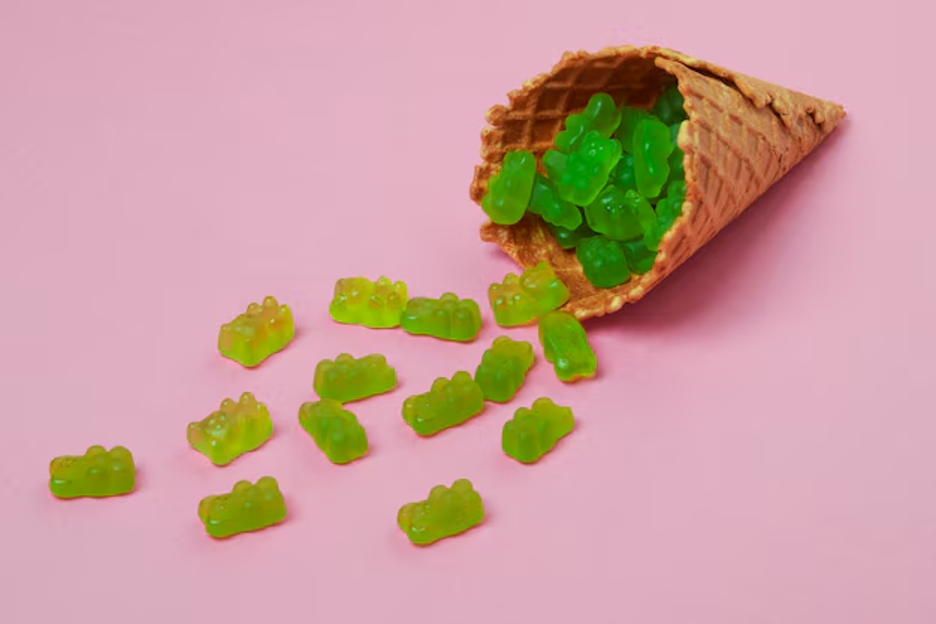

Cannabis has so many compounds, and two that have been making the rounds lately are HHC and Delta 9 THC. They’re not the same thing, even though they’re both cannabinoids that interact with the body’s endocannabinoid system. Some people want a mild, steady experience, while others might be looking for something more intense. Understanding these two can help you figure out what’s right for you.
What Is HHC?
HHC, short for hexahydrocannabinol, is a hydrogenated version of THC. It’s not something you’d find naturally in large amounts in cannabis plants. Instead, it’s made through a process that adds hydrogen molecules to THC. The result? A more stable compound that’s less prone to breaking down when exposed to heat or UV light.
How HHC Is Made
Think of it like a science experiment. HHC is usually created in a lab by taking Delta 9 or Delta 8 THC and using hydrogenation—basically, combining it with hydrogen under pressure and in the presence of a catalyst. This process changes its structure while keeping its effects somewhat similar to THC.
Common Uses and Effects of HHC
People who use HHC say it’s somewhere between Delta 8 and Delta 9 in terms of effects. It’s often described as relaxing but without being overly sedative. You might feel a light buzz, reduced stress, or mild euphoria. Some even claim it helps with discomfort or improving sleep, but solid research is still catching up. Since it’s less potent than Delta 9, it’s often favored by those who want a manageable experience without the strong psychoactive punch.
If you’re interested in trying HHC and Delta 9 for yourself, check out their wide range of products at trycandycloud.com. They’ve got everything from gummies to disposable vapes, all crafted for a smooth experience.
What Is Delta 9 THC?
Delta 9 THC is the main psychoactive compound in cannabis. It’s the reason you feel “high” when you use weed. Chemically speaking, Delta 9 has a double bond in its ninth carbon chain, which plays a big role in how it interacts with your brain.
Natural Occurrence in Cannabis
This one is straightforward: Delta 9 is found in high concentrations in marijuana plants. It’s what most people think of when they hear “THC.” Unlike HHC, there’s no need for a lab process—it’s already there. Hemp plants, however, contain much lower levels of Delta 9 THC, which is why it’s primarily extracted from marijuana.
Common Uses and Effects of Delta 9 THC
The effects of Delta 9 are well-documented. Depending on the dose, you might feel euphoria, increased appetite, or deep relaxation. For medical users, it’s often used to manage chronic pain, nausea, and other conditions. It’s also been studied for its potential benefits in anxiety relief, though higher doses might have the opposite effect, causing paranoia. Delta 9 THC is versatile, but it’s not without its risks, particularly for new users or those sensitive to its psychoactive effects.
Key Differences Between HHC and Delta 9 THC
Chemical Structure and Composition
The main difference is in their structure. Delta 9 THC has that iconic double bond, while HHC’s hydrogenation makes it more stable. This difference might not mean much to the average person, but it’s why HHC is less likely to degrade over time.
Potency Levels
Delta 9 THC is generally more potent. HHC might require a higher dose to get a comparable effect, but some people prefer its lighter touch. Potency differences can also depend on the method of consumption, with edibles typically providing a stronger, longer-lasting effect compared to vaping or smoking.
Duration of Effects
Both last a few hours, but some users report that HHC’s effects fade more gradually. Delta 9, on the other hand, can have a sharper comedown. HHC’s gradual fade makes it appealing for those who want a smooth end to their experience.
Benefits and Drawbacks of HHC and Delta 9 THC
HHC: Pros and Cons
Pros:
- More stable, so it lasts longer on the shelf.
- Effects are milder, making it less overwhelming for beginners.
- Can be a functional option for daytime use.
Cons:
- Limited research, so we don’t know its full impact yet.
- Availability can be hit or miss depending on where you live.
- Legal gray area in many regions.
Delta 9 THC: Pros and Cons
Pros:
- Well-studied with established medical uses.
- Widely available in areas where cannabis is legal.
- Stronger effects make it ideal for experienced users or those with high tolerance.
Cons:
- Higher chance of side effects like anxiety.
- More likely to show up on drug tests.
- Shorter shelf life compared to HHC.
Frequently Asked Questions (FAQ)
Q. Is HHC safer than Delta 9 THC?
Not enough research exists to say definitively, but HHC’s milder effects might make it feel safer to some users.
Q. Will HHC or Delta 9 THC show up on a drug test?
Yes, both can potentially show up on a drug test, so use with caution if that’s a concern.
Q. Which one is better for recreational use?
That depends on your preferences. HHC is great for a mellow time, while Delta 9 is better if you’re looking for something more intense.
HHC vs. Delta 9: Choosing the Right One for You
The choice comes down to what you’re after. If you want a milder, more laid-back experience, HHC might be a good option. On the other hand, if you’re looking for something stronger or need it for medical reasons, Delta 9 is the way to go. It also depends on what’s legal and available where you are. And always consider your tolerance levels and experience before diving in. If you’re unsure, consult with a knowledgeable dispensary staff.
Resources:
Cannabis News
What Federally Illegal Drug Has Created Almost $10 Billion in Sales Tax Revenue for States in the Last 40 Months?
Published
3 days agoon
December 20, 2024By
admin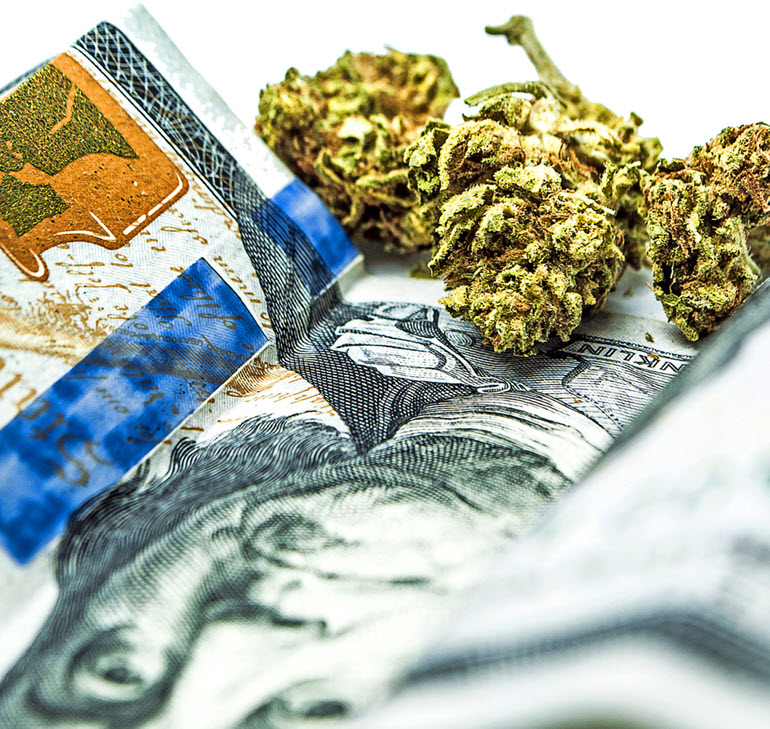
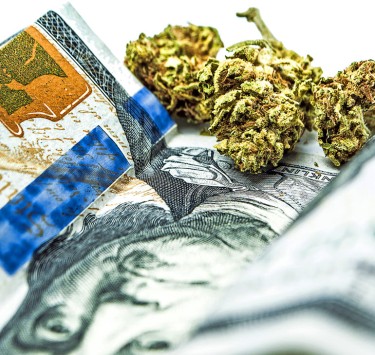
In a significant development for the burgeoning cannabis industry, the U.S. Census Bureau has reported that states across the nation have collectively amassed over **$9.7 billion** in tax revenue from marijuana sales since mid-2021. This figure underscores the economic impact of legalized cannabis and highlights the growing acceptance of marijuana as both a recreational and medicinal substance in various states. As more states move toward legalization, the financial implications both positive and negative are becoming increasingly evident.
The Landscape of Cannabis Legalization
The journey toward cannabis legalization in the United States has been long and complex. Initially criminalized in the early 20th century, cannabis began to regain acceptance in the late 20th century, particularly for medical use. The first state to legalize medical marijuana was California in 1996, setting a precedent that many states would follow.
By 2012, Colorado and Washington became the first states to legalize recreational cannabis, paving the way for a wave of legalization efforts across the country. As of now, more than 20 states have legalized recreational marijuana, while over 30 states allow medical use. This shift reflects changing public attitudes toward cannabis and recognition of its potential benefits.
Economic Implications of Legalization
The legalization of cannabis has not only transformed social norms but has also created a substantial economic impact. States that have embraced legalization have seen significant increases in tax revenue, job creation, and investment opportunities.
According to the latest Census Bureau report, states like California, Colorado, Illinois, and Michigan have emerged as leaders in cannabis tax revenue generation. These states have implemented various tax structures on marijuana sales, including excise taxes, sales taxes, and local taxes. The revenue generated is often earmarked for essential public services such as education, healthcare, infrastructure improvements, and drug rehabilitation programs.
Breakdown of Tax Revenue by State
As the largest legal cannabis market in the United States, California has been at the forefront of marijuana tax revenue generation. Since mid-2021, California has contributed approximately $2.5 billion to state coffers from cannabis taxes. This revenue is derived from both recreational and medical marijuana sales.
California’s tax structure includes a 15% excise tax on retail sales, along with local taxes that can vary significantly by city and county. The state has allocated a portion of these funds to various programs aimed at addressing issues related to drug abuse and public health.
Colorado was one of the pioneers in cannabis legalization and continues to serve as a model for other states. Since mid-2021, Colorado has generated around $1.8 billion in tax revenue from marijuana sales. The state imposes a 15% excise tax on wholesale marijuana transactions and a 2.9% sales tax on retail sales.
The revenue generated from cannabis taxes has been instrumental in funding education initiatives through the Public School Fund, as well as supporting mental health programs and substance abuse treatment services.
Illinois has seen remarkable growth in its cannabis market since legalizing recreational use in January 2020. In just two years, Illinois has collected approximately $1 billion in tax revenue from marijuana sales. The state imposes a tiered excise tax based on the potency of the product, ranging from 10% to 25%.
The funds collected are allocated to various initiatives, including community reinvestment programs aimed at addressing social equity issues related to past drug enforcement practices.
Michigan’s cannabis market has also flourished since legalization. Since mid-2021, Michigan has generated about $700 million in tax revenue from marijuana sales. The state’s tax structure includes a 10% excise tax on recreational marijuana and a 6% sales tax.
The revenue is utilized for various purposes, including education funding and support for local governments impacted by legalization.
Broader Economic Impact
The legalization of cannabis has led to significant job creation across various sectors. According to industry reports, the legal cannabis market supports hundreds of thousands of jobs nationwide—from cultivation and processing to retail and distribution. As more states legalize marijuana, this trend is expected to continue.
With the growth of the legal cannabis industry comes increased investment opportunities. Entrepreneurs are entering the market at an unprecedented rate, leading to innovations in product development, marketing strategies, and distribution channels. This influx of investment not only benefits individual businesses but also stimulates local economies.
Social Equity Considerations
While the financial benefits of cannabis legalization are clear, it is essential to address social equity issues that arise alongside this new industry. Many states have recognized that communities disproportionately affected by past drug enforcement policies should benefit from legalization efforts.
States like Illinois have implemented community reinvestment programs that allocate a portion of cannabis tax revenues to support communities impacted by previous drug laws. These funds can be used for education initiatives, job training programs, and mental health services—aiming to rectify historical injustices associated with cannabis prohibition.
In addition to financial support for communities affected by past policies, some states are also working to create equitable licensing opportunities for individuals from those communities. By prioritizing applications from minority-owned businesses or those directly impacted by previous drug laws, states can foster a more inclusive cannabis industry.
Challenges Ahead
Despite the significant progress made through legalization efforts, challenges remain on both state and federal levels.
Federal Legalization Uncertainty
One major hurdle is the ongoing conflict between state and federal laws regarding cannabis. While many states have legalized marijuana for recreational or medical use, it remains classified as a Schedule I substance under federal law. This discrepancy creates complications for businesses operating legally at the state level but facing potential federal prosecution.
Efforts toward federal legalization or decriminalization have gained traction recently; however, progress remains slow due to political divisions and differing opinions on drug policy reform.
Regulatory Hurdles
As more states enter the legal cannabis market, regulatory frameworks must evolve to ensure consumer safety while promoting fair competition among businesses. States face challenges related to product testing standards, labeling requirements, advertising restrictions, and taxation policies that can impact market dynamics.
Conclusion
The U.S. Census Bureau reports that states have collected over $9.7 billion in marijuana tax revenue since mid-2021, highlighting the significant economic impact of cannabis legalization. As public acceptance grows, more states are likely to pursue legalization. Despite ongoing challenges, including federal regulations and social equity issues, legalized cannabis is poised to remain a vital part of state economies. Collaboration among government officials, business leaders, and community advocates will be essential for fostering an equitable and sustainable cannabis industry. This evolving landscape not only presents economic growth opportunities but also addresses historical injustices tied to drug policy enforcement, shaping the future of cannabis legislation in the U.S.
WHAT STATES HAVE THE HIGHEST WEED TAXES? READ ON…

Cannabis operators report Instagram page ‘shadow bans’ and closures

How Interstate Commerce is Driving the Growth of Hemp-Derived Consumer Products

The Grinch Stole SAFE Banking from the Cannabis Industry This Christmas, Yet Again!

HHC vs. Delta 9: Differences & Similarities
DOJ Asks Federal Court To Deny Doctors’ Lawsuit Over Marijuana Rescheduling Hearing To Avoid ‘Undue Delay’

What Federally Illegal Drug Has Created Almost $10 Billion in Sales Tax Revenue for States in the Last 40 Months?

Three Wise Men Give Marijuana Strain Gift Suggestions

Tasmanian Hemp Assoc Bids Goodbye To Australian Hemp Council

Teen Marijuana Use Continues To Drop With Legalization

The Best Cocktails To Make You Feel Festive

Distressed Cannabis Business Takeaways – Canna Law Blog™

United States: Alex Malyshev And Melinda Fellner Discuss The Intersection Of Tax And Cannabis In New Video Series – Part VI: Licensing (Video)

What you Need to Know

Drug Testing for Marijuana – The Joint Blog

NCIA Write About Their Equity Scholarship Program

It has been a wild news week – here’s how CBD and weed can help you relax

Cannabis, alcohol firm SNDL loses CA$372.4 million in 2022

A new April 20 cannabis contest includes a $40,000 purse

Your Go-To Source for Cannabis Logos and Designs

UArizona launches online cannabis compliance online course
Trending
-

 Cannabis News2 years ago
Cannabis News2 years agoDistressed Cannabis Business Takeaways – Canna Law Blog™
-

 One-Hit Wonders2 years ago
One-Hit Wonders2 years agoUnited States: Alex Malyshev And Melinda Fellner Discuss The Intersection Of Tax And Cannabis In New Video Series – Part VI: Licensing (Video)
-

 Cannabis 1012 years ago
Cannabis 1012 years agoWhat you Need to Know
-

 drug testing1 year ago
drug testing1 year agoDrug Testing for Marijuana – The Joint Blog
-

 Education2 years ago
Education2 years agoNCIA Write About Their Equity Scholarship Program
-

 Cannabis2 years ago
Cannabis2 years agoIt has been a wild news week – here’s how CBD and weed can help you relax
-

 Marijuana Business Daily2 years ago
Marijuana Business Daily2 years agoCannabis, alcohol firm SNDL loses CA$372.4 million in 2022
-

 California2 years ago
California2 years agoA new April 20 cannabis contest includes a $40,000 purse





